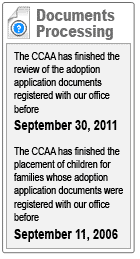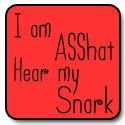恭喜發財! (Gong1 xi3 fa1 cai2) - That last syllable is pronounced "tsai2".
新年快樂! (Xin1 nian2 kuai4 le4)
And a happy new year to all. Life has been fairly busy for me over the past few months (ah, the crazy life of a recently engaged woman), but I couldn't resist posting today, two days before Chinese New Year. Out here in California, the more liberal-minded call it the Lunar New Year, since more cultures than just the Chinese celebrate it.
First off, the obligatory Wikipedia reference:
http://en.wikipedia.org/wiki/Chinese_new_year
That being said, I wanted to reminisce a little and talk about what Chinese New Year means in my family, and the various traditions we uphold. In no particular order, I want to talk about:
- Catch phrases
- Red envelopes
- Clothing
- Food
- Superstitions or lack thereof
Well, there are only two, and I've already posted them up above. I always was irritated in elementary school, when all the teachers would teach that Chinese people said "Gong Hay Fat Choy." I never grew up saying that, and then the teachers would look sweetly at me and ask me to pronounce it for the class. "Gong xi fa tsai," I'd say. They'd then look at what they'd written on the board and look at me as if I were crazy.
I was trying to explain this to a coworker this morning - there are over 40 dialects of Chinese, but only one written language. The pronunciation of the words have nothing to do with the words themselves, especially when you go from one dialect to another. In the United States, there's a fair split between Cantonese speakers and Mandarin speakers (two of the larger dialects, the latter of which is the national language for China and Taiwan, and the former of which was the dialect used in Hong Kong), with smaller number of people speaking some of the more rural dialects, such as Shanghainese and Toisan.
About 30, 35 years ago (the exact date is probably up on Wikipedia), the Chinese government decided that they needed to address the illiteracy rate, and decided to simply the characters significantly. Those on the mainland switched, those that were not underneath Chinese rule (Taiwan, Hong Kong, Macau), never did. The new system was called "Simplified Chinese," and the older one was then called Traditional Chinese. There is no real correlation between which people groups use one and not the other. As someone who grew up with two parents who had grown up in Taiwan, I learned Traditional Chinese, and hold fast to that now. (That means that every word I post in Chinese here will be in Traditional, sorry.)
Okay, anyway, back to the phrases. "Gong1 xi3 fa1 cai2," according to Wikipedia, means "congratulations and prosperity." It's close enough - the first two DO mean congratulations, and the second two is more "may prosperty come to you/grow." It's the most common greeting. (On a side note, some people came up with a rude little rhyme that continues, "Hong2 bao1 na2 lai2." Don't say that or risk being thought a rude lout - it means "fork over the red envelopes.") Many people also believe in the superstition of 8 being a good number because of this word "fa1". In Mandarin, the number 8 is "ba1," and it rhymes with this word prosperity. While Western societies believe the number 7 is lucky, Chinese believe it's 8.
The other one I've said during the normal new year - "Xin1 nian2 kuai4 le4." The last two words are general celebratory words ("le4" means unbounded happiness or joy), and the first two are literally "new" and "year."
So, the tradition goes: I walk into the door. I greet my grandparents and say those two catchphrases. They are pleased I am so well-mannered and welcome me in.
Red Envelopes
This normally came after supper, but it's a large part of this celebration - and any birthday, for that matter. These red envelopes are literally that - little red packets just about the size of an index card. "Hong2 bao1" means... wait for it... red... package. Bao1 is meant to be used for anything wrapped up, such as food (bao1 tze3) or a package, to package (bao1 ci3 lai2). You can pick them up in any Chinese grocery store or within specialty stores. Sometimes they have little people on it, sometimes they have a Chinese character on it. The ones I get from my mom come from the local Bank of America branch, and have both the BofA logo and a really nice picture of a flower.
When we were younger, we were made to kowtow (kuh1 toh2) to our grandparents for our red envelopes. Kowtowing literally means "knocking the head," and consists of kneeling on both knees on the ground and pressing the head between the hands on the ground. When I grew older and was more sensitive to these types of things, I was completely shocked that we would practice ancestor worship like this, and always felt very strange kowtowing. But then I joined a martial arts club and we bowed to each other like this every single day, and it took on a definition of respect.
The system of red envelopes is very simple - red envelopes are given to anyone of the generation below you. I wouldn't give hongbao to my siblings or to my cousins, nor to my parents or grandparents. But I give hongbao to my friends' children, my godson and his brother, and in the future, to my own children. When does it stop? I've heard many different stories from many different people, but my own family celebrates it by giving hongbao to the unmarried children, even adult unmarried children. (This holds to the belief that a Chinese kid is not an adult in the household until he/she is married.) Other people hold onto the magic number 30, and even others say when the first child of that generation gets married.
On a side note, this means this is the last year I'll get them on both counts. :)
On another side note, hongbao are also given on the children's birthdays as well as on the grandparents' birthdays as a part of the celebration.
Clothing
There's only one real rule about clothing. Red.
Red is considered a lucky color - some might say auspicious, and if you believe the Wikipedia article, it's because it scares off demons. Nonetheless, red (and the pure red, not a dark red or pink) is widely accepted for anything that you wish to celebrate - New Year's in particular. (For instance, I also wear red at my grandparents' birthdays.)
Food
There are a couple of things to note about food. 1. There is always food at any celebration. 2. Nian2 gao1! This particular type of food is a sticky rice pasta, somewhat along the line of "fun" (like chow fun or ho fun at restaurants). It's normally made in long sticks and sliced to about 1/4" thickness, then stir fried with meat and vegetables. This nian2 means "sticky," but it happens to be a homophone of "year," so of course you eat "year cakes" during the new year! It also helps that it's one of my grandfather's favorite foods....
Superstitions
I was reading through the Wikipedia article and realized that I really have none of these superstitions ingrained into me except for maybe the haircut one. (And we're not even Cantonese!) Having been raised in the United States, a lot of these superstitions seem pretty bizarre (including the one about opening umbrellas indoors) - but then again, walking underneath ladders and black cats would seem strange to one from an Asian country. Let's just say that the superstitions on that page might come from many different regions, and each region of China celebrates in different ways.
We will be celebrating this Saturday night with a dinner with our extended family at my grandparents' house, given that it is the first year we've really been together as a family, as my siblings had been travelling. As is the tradition within Western culture, we celebrate on the night before the new year (New Year's Eve), and cross into the New Year ("guo4 nian2") together - though we don't stay up.
On a separate note, last year's New Year celebration was where my boyfriend first met my parents, so I guess it was a lucky year for me. This year, the year of the Fire Boar, is considered especially auspicious for children, as everyone wants a child who is quietly industrious. (I wouldn't know, I'm a dragon. :) )
Happy New Year to you all, and I wish you a best and prosperous new year!




















3 comments:
Thanks for the great summary!
Keep smilin!
Nice post. Thanks for the information!
Great info! I like to hear about personal experiences, not just facts from a book. Thanks!
Post a Comment